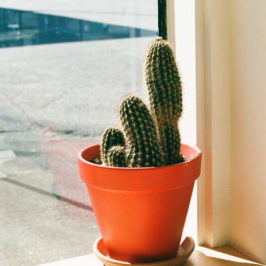 Lace and shadows, tea laid on silver trays and the smell of incense lingered. She had made her attic into a nest, magpie-like—strange glints of old-fashioned jewellery, faded photographs. He couldn’t quite tell if she was serious, or if this was an elaborate game. He missed her steady grey gaze. Now she cast him fleeting glances, half-smiles, if she looked at him at all. It might be fairy dust that hovered in her sunbeams.
Lace and shadows, tea laid on silver trays and the smell of incense lingered. She had made her attic into a nest, magpie-like—strange glints of old-fashioned jewellery, faded photographs. He couldn’t quite tell if she was serious, or if this was an elaborate game. He missed her steady grey gaze. Now she cast him fleeting glances, half-smiles, if she looked at him at all. It might be fairy dust that hovered in her sunbeams.
—
She had traded her scuffed sneakers for soft Oxford shoes, her purple scrunchie for cloth rosebuds. She had acquired an antique typewriter, for God’s sake. How could he have a serious conversation with someone who had so thoroughly given herself over to fantasy? How could he spend more than five minutes in this antique hideaway without feeling dreadfully out of place?
He traced the start of it all to a day in late February, when she had not responded to his calls or messages for a full 24 hours. They usually saw each other every day, so this sudden lapse in communication had been alarming. The heavy grey sky had sunk low over the city into darkness, and receded reluctantly and incompletely the next day. When she finally picked up the phone, her voice rasped a little, and she sounded strangely far away.
“Yeah, sorry about that. I’m here now.”
—
The next day she had disappeared to Nob Hill, dressed a little out of character. She passed his ground-floor apartment without a word or a glance. She returned four hours later laden with seventeen vintage picture frames, a turntable, and an antique tea set. He was mystified.
As the weeks wore on her bed became engulfed in mismatched throw pillows, and twinkling lights spread their way around her apartment like vines. She began to wear large, thick-framed glasses, and chunky geometric sweaters. She took up knitting. Once, when he was undressing her, he found a row of birds tattooed across her shoulder. They were red and puffy around the edges, and shockingly dark on her pale skin.
“You got a tattoo?” he asked in confusion.
She shrugged, and kissed his ear in response.
—
He didn’t see her very often, anymore, and when he did, she hardly spoke. She seemed to have acquired a new batch of friends, who liked to go to parties in basements on the edge of town, drink moonshine, and talk about obscure musicians. She invited him, once, but he felt so out of place that he spent the evening standing in a corner, swinging his long arms, staring at the carnival around him and trying to avoid making eye contact. When he saw a girl with a pet rat poking its head in and out of her bra, and nibbling on the ends of her braid, he left.
She did not want to go to the park with him, or the greasy spoon where they used to have brunch, or watch the 49ers beat the Cowboys. She never seemed to make eye contact with him at all. When they slept together, she tucked her head over his shoulder, or closed her eyes. He felt her silently slipping away, and was completely at a loss for what to do. What could have happened, to have opened this rift? Had she just woken up that day in February, and stopped loving him?
He decided that she had met a tall, quiet bass player. Someone with dark curly hair and sleeve tattoos, who wore a bow tie and talked about Nietzche. He imagined her tucked under this imaginary musician’s arm, laughing at some intellectual joke, and felt physically ill.
—
He looked at pictures of them in happier days, camping on the Big Sur coast, buying giant sacks of candy on Pier 39 with the tourists, playing with someone’s dog on a windy day in Golden Gate Park.
“You’re a golden retriever, you know,” she had told him, her hair blowing everywhere.
“What?” he had laughed.
“A golden retriever,” she insisted, raising her voice so as to be heard over the breeze. “Generally loveable, not too picky, needs to run around every day. Slow to anger, loyal, all that jazz.”
“What about you?” he asked. She thought for a moment.
“A border collie.”
“So you’re super smart.”
“Ha! I was thinking more like, playful. And a little neurotic.”
She was not a border collie anymore, that was for sure. Not even a dog, he thought. She’d be some sort of secretive, long-haired cat. She would hide in her furniture and snub him.
It wasn’t that she was ever aggressive. She never made an effort to break up with him. They didn’t fight. She just pulled ever further away. And made snarky comments, sometimes, that stung him and made him feel stupid. It was after one such comment that he finally snapped at her, after months of endurance.
“Seriously! What the fuck is going on with you? If you want to break up with me, just do it already! But whatever this crazy fucking act is, with your little fairy hideout and your fucking pretentious friends, I’ve had—”
He stopped short when he noticed that she had collapsed onto the floor in a billowing of floral skirts, and was hunched over her knees and sobbing. She took a giant rasping breath that sounded like it pulled the skin from inside her lungs, and said in a barely audible voice, “My mom died.”
The anger that had been building in him for months evaporated instantaneously. He wanted to rush at her and surround her with the best comfort his arms could give.
She waved away his sympathy and brushed impatiently at the tears on her blotchy cheeks. “It’s so stupid, it’s not really sad, I knew it was coming for so long. It wasn’t a surprise. It was…”
He wanted to say something consoling, but no words rose to his lips. It was okay, though, because she was finally talking again, a whole stream of jumbled words and sobs spilling from her smudged red lips.
“I mean, how do you just, SAY that? I almost told you so many times, and I just… I mean, what a fucking bombshell! How do you just drop that casually into a conversation? ‘We should check out this new restaurant I heard about, and oh, by the way, my mom died?’ Any—any way of bringing it up would make it this big thing, which it wasn’t. And after a few months, it just got weird… it had been too long to bring it up then, and I just—I needed to distract myself with something, and you were just, so, exactly like you always are, and I couldn’t bring myself to put that look of like shocked pity on your face, yes, that one, ha, of making you be all awkward and not knowing what to do and I just—I just—couldn’t—keep on going exactly the same.”
He did hug her, at that point, and she was right that he did not know what to do. But he stroked her hair, quietly, and hoped that it would be enough.






